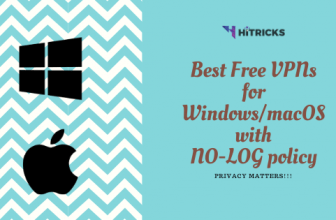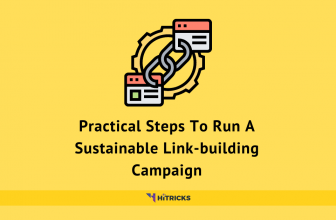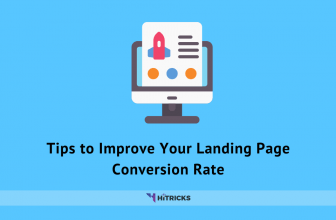The rotating hourglass or the spinning rainbow ball can be a frustrating sight when you have a slow computer. Several factors contribute to having a slow computer – chief among them is having an outdated operating system (OS). It applies to everyone, whether you are using Windows, or MacOS.
Have you ever asked yourself, “why is my computer so slow?” The answer is most likely one of the following.
Malware and Spyware:
Malicious software like viruses, spyware, ransomware, and other unwanted software can secretly install itself onto your computer. The malware can steal, alter, or read your data. Additionally, they can send undesirable or inappropriate ads, ransom your encrypted data, and make your device vulnerable to even more malware.
You can detect if your device has malware through its behavior if you notice anything out of the ordinary, such as any of the following:
- It’s slowing down, crashing, or displaying repeated error messages.
- It won’t restart or shut down.
- It won’t allow you to remove the software.
- It shows inappropriate ads, such as pop-ups or ads that infringe on-page content.
- Your browser or desktop has new toolbars or icons that you didn’t install yourself.
- Your browser resets to a new default search engine or homepage. Additionally, it may display new tabs or websites you didn’t open.
- You find it sent emails that you didn’t write.
- You quickly run out of battery.
Malware can get into your computer in several ways. Some of the most common ways are through an outdated operating system or a zero-day attack. Updates are essential to the health of your computer. They come with security updates and software patches that improve the operations and performance of your device. If you don’t update your device as soon as an update is available, your machine will be vulnerable.
If you suspect that you have malware, you should immediately stop shopping, banking, and doing other things online involving usernames, passwords, or other sensitive information. You can resume once your device is clean.
Ensure that all devices use security software like antivirus software and firewalls to keep a vigilant eye on any cyber threats. All your software, including your security software, must be updated. Schedule regular scans for malware, and delete anything that is flagged. Also, follow these safety tips for banking and online transactions.
You Can’t Use the Latest Technology:
The evolution of tech is great for humanity but not so great for the tech that gets left behind. Software and hardware continuously evolve to be more efficient, less costly, and more capable. As the technology improves, it has to shed everything that can’t keep up, including old tech.
That’s why new software and hardware demand the latest OS. The OS will have the features and power to support the latest tech. If your OS is outdated, you leave yourself vulnerable to cyberattacks, risk system failure, and harm your productivity.
Hardware Failure:
Your operating system is the foundation on which your entire IT infrastructure runs. If it isn’t operating at its optimum levels, it will impact the ability of anything built on it to function, like your hardware.
If your OS is riddled with malware, slow, or keeps crashing, it will affect the bottom line and ability to serve customers promptly. Failing equipment can be disruptive as your productivity falls. It can also be costly since the hardware will fail from your actions rather than wear and tear.
Slow Performance and Wasted Energy:
Legacy technology is slower and requires more maintenance in terms of patches, or even customer support calls to figure out compatibility issues. While productivity may not amount to much for personal computer users, costs can add up on an enterprise level.
You want employees to use computers as an efficient tool to leverage productivity, not dealing with slow computers that sap the energy from the employee or customer experience.
Cybersecurity Vulnerabilities:
An outdated OS leaves your system vulnerable to attacks. Cybercriminals will be using the latest tools to penetrate your system, so your outdated OS won’t be able to catch up. As a business, obvious cybersecurity vulnerabilities like an outdated OS aren’t easily forgiven by consumers, business partners, or regulators.
If criminals breach your systems, the customer won’t trust you with their information, or perform transactions, and will likely have a low opinion of your brand. Business partners will prefer not to do business with you, as your vulnerable systems will be a weak point that can compromise their systems. Governments and regulators also take data security seriously; you could face fines, penalties, and even jail time if you flout data security laws.
Update Your OS:
Software is constantly evolving. Your personal and business data should keep up with it. You don’t have to buy anything new most of the time – just use a free update that’ll keep your systems safe. The data you hold isn’t just your own – it also includes that of customers and business partners, so keep it secure.
Last Words:
Those are all the risks that you should take care of in case you are running an older operating system. Hence, it is always recommended to keep your system and software updated. I have already written a guide on How to Force-Update your Windows 10 to the latest version and How to Install Windows 11, you should definitely check it out.
Thank you for reading. I will be back soon with another interesting update. Keep visiting HiTricks. Don’t forget to join our Telegram Channel for getting the latest tech updates.
Nirmal Sarkar is a Biotechnologist from the city of Joy, Kolkata. He is the founder of this blog and covers a wide range of topics from Gadgets to Software to Latest Offers. You can get in touch with him via nirmal@hitricks.com







